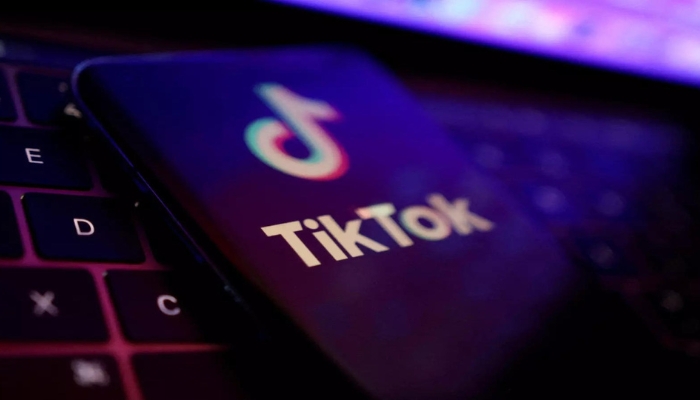House votes to make ByteDance divest TikTok
4 min read
The CEO of the China-based company expressed disappointment with the vote and vowed to protect the platform
The House of Representatives passed a bill on Wednesday that would compel ByteDance, the owner of TikTok, to sell the social media platform or face a complete ban in the United States. The vote was overwhelmingly in favor, with 352 members of Congress voting for it and only 65 against. The bill, which was quickly moved to a vote after receiving unanimous approval from a committee last week, gives ByteDance 165 days to divest from TikTok. Failure to do so would result in app stores, including the Apple App Store and Google Play, being legally prohibited from hosting TikTok or providing web hosting services to ByteDance-controlled applications.
Shortly after the vote, TikTok’s CEO, Shou Zi Chew, expressed disappointment with the outcome and stated that the company would take all necessary steps to protect the platform, including exercising its legal rights.
Chew highlighted TikTok’s investments in data security and maintaining independence from external influences. He criticized the bill, stating that it would consolidate power among a few social media companies and harm creators and small businesses. Chew warned that the legislation could jeopardize over 300,000 American jobs and remove access to TikTok for users. The House vote underscores the significant challenges TikTok faces amid ongoing concerns about data privacy and political censorship. TikTok has consistently denied allegations of sharing US user data with the Chinese government.
Despite these arguments, TikTok has faced challenges, including an attempted ban by Donald Trump in 2020 and a state-level ban passed in Montana in 2023. However, courts blocked both bans, citing violations of the First Amendment. Trump has since reversed his stance and now opposes a ban on TikTok.
Before the House vote, China’s Ministry of Foreign Affairs spokesman, Wang Wenbin, criticized the US for “hegemonic” practices, stating that the US continued to target TikTok despite finding no evidence of it posing a threat to national security.
The US’s aggressive actions disrupt the normal international trade order and may eventually have negative consequences.”
In March 2023, the Committee on Foreign Investment in the United States (CFIUS) led by the Treasury Department demanded that ByteDance sell its TikTok shares or face the possibility of a ban on the app, as reported by Reuters. However, no action has been taken yet.
The future of the bill is uncertain in the Senate. Some Senate Democrats have publicly opposed the bill, citing concerns about freedom of speech, and have proposed measures to address concerns about foreign influence on social media without specifically targeting TikTok. Senator Elizabeth Warren said, “We need regulations for social media, but they should apply universally.”
Democratic Senator Mark Warner, who introduced a separate bill last year to grant the White House new authority over TikTok, expressed reservations about the constitutionality of a targeted approach toward specific companies but stated he would closely examine this bill.
The White House has endorsed the legislation, with Press Secretary Karine Jean-Pierre stating that the administration is eager to see this bill passed and reach the president’s desk.
The bill’s authors contend that it is not a ban but rather offers ByteDance the chance to sell TikTok and prevent a US block. Representative Mike Gallagher, the Republican chair of the House select China committee, and Representative Raja Krishnamoorthi, the committee’s lead Democrat, introduced the legislation to tackle national security worries stemming from Chinese ownership of the app.
“TikTok could continue to exist, and users could engage freely, provided there is a separation,” Gallagher said, urging US ByteDance investors to back a sale. “It’s not a ban – think of it more like a surgery to remove a tumor and save the patient in the process.”
TikTok, with 170 million US users, disagrees, noting uncertainties around China’s approval of a sale or the feasibility of divesting in six months.
“This legislation appears to have a predetermined outcome: a complete TikTok ban in the US,” the company said post-vote. “The government is aiming to strip 170 million Americans of their constitutional right to free expression. This will harm many businesses, deprive artists of their audience, and ruin the livelihoods of numerous creators nationwide.”
After the committee passed the bill, staffers voiced concerns about TikTok supporters inundating Congress with phone calls, prompted by a notification from the app urging users to oppose the legislation.
“Why are Members of Congress complaining about hearing from their constituents? Respectfully, isn’t that their job?” TikTok stated on X.
While the bill was tailored for TikTok, it could potentially affect other China-owned platforms, including Tencent’s WeChat, which Trump also targeted for a ban in 2020. Gallagher declined to speculate on other potential impacts of the bill but suggested that future discussions could include which companies would be covered by the legislation.



